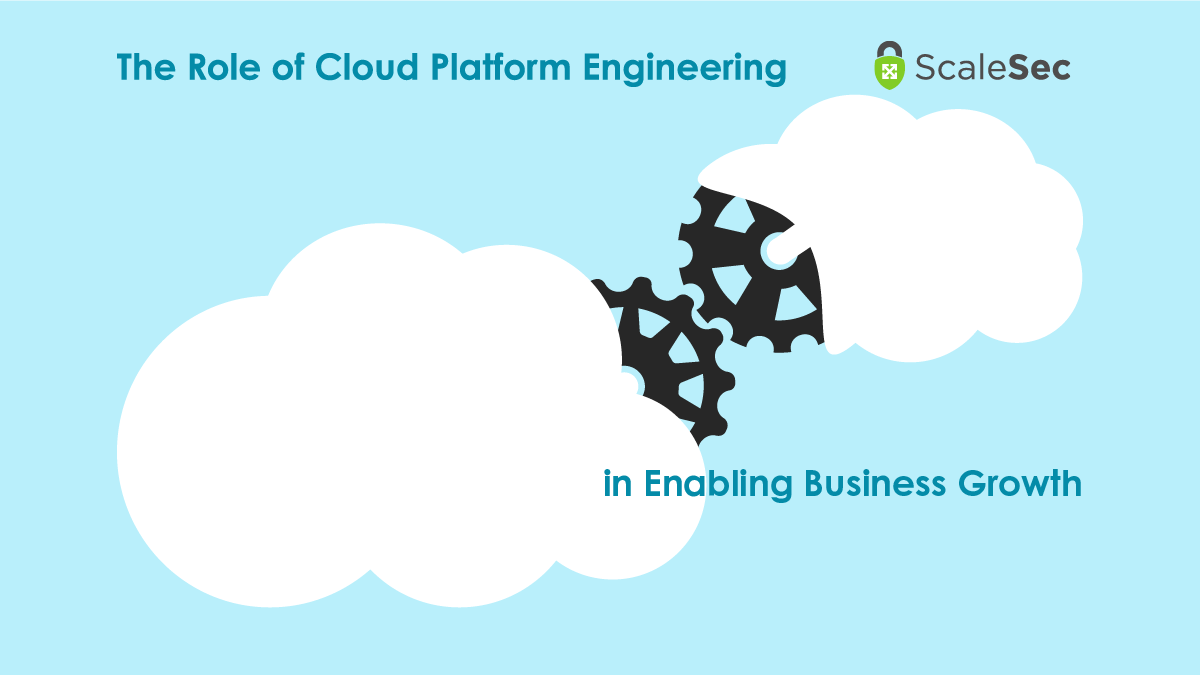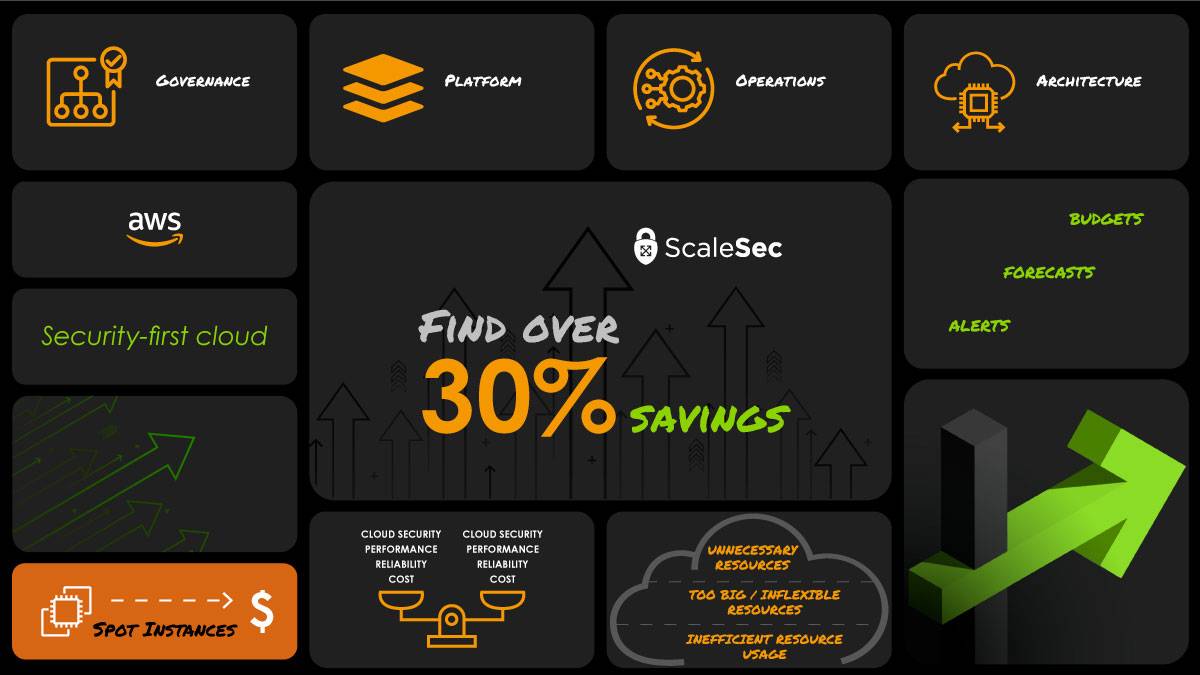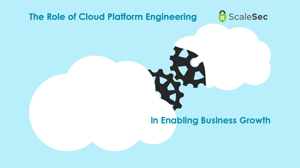
The Role of Cloud Platform Engineering in Enabling Business Growth
The Role of Cloud Platform Engineering in Accelerating Business Growth
Cloud platform engineering accelerates business growth by driving DevOps adoption and enabling the adoption of the Cloud Operating Model. In today’s digital landscape, organizations rely on cloud platforms to streamline operations, enhance customer experiences, and gain a competitive edge. Cloud Platform Engineers build self-service capabilities (such as shared infrastructure, development tools, monitoring tools, workflows) to improve developer productivity and enable rapid deployment and resource scalability. This optimization improves agility and unlocks growth opportunities in a dynamic world.
What is Platform Engineering?
Platform engineering was identified by Gartner as one of the top 10 strategic technology trends of 2023. Like many concepts in the tech world, platform engineering is understood to mean different things to different companies, and the term itself is not new. In some organizations following a traditional ops model, platform engineering simply means engineering the underlying architecture (such as networking, compute). In these companies, the activities and work streams of the platform engineering team (as well as other engineering and operation teams) is siloed. Work is passed between teams via mechanisms of work requests and change tickets. This can create bottlenecks and delays as teams wait for approval or work to be fulfilled.
Alternatively, other organizations follow the DevOps approach of “You build it, you run it”, which allows developer teams to own the entire development lifecycle and build at a faster rate. One of the common challenges with DevOps adoption is creating a culture of developer “free-for-all” where there is poor enforcement of governance, standards and security baselines. Additionally, there is increased cognitive load on the development team to learn and maintain new technologies. This may lead to talent shortages, or and gaps being left unaddressed.
Platform engineering is not a replacement or rebranding for DevOps, but a way to align with DevOps adoption. Platform engineering aligns with DevOps’s tenants of shared responsibility, collaboration between development and operations, usage of automation, and shifting security “left”. A crucial addition that platform engineering brings to the table is the emphasis on treating the platform as a product, as will be elaborated on later in this article. Platform engineering enables DevOps adoption to scale to the organization-level, particularly in the cloud-native era.
Companies are moving to the cloud because the cloud offers tremendous benefits in improving business agility, efficiency, and scalability. However, cloud migration without a strategic framework leads to inadequacies in governance and security, as well as an inefficient use of resources. The Cloud Operating Model provides the strategic direction to enable organizations to be successful with cloud adoption, and the Cloud Platform Engineering team is a critical component of that. In this context, a Cloud Platform Engineering team is responsible for building self-service capabilities (for example development tools, monitoring tools, workflows) to minimize cognitive load for developers, which enables fast flow software delivery without compromising on governance and standards.
What Is Cloud Platform Engineering Used For?
To better illustrate the purpose of a Cloud Platform Engineering team, it’s helpful to get an overview of responsibilities that may be in scope:
- Establishing codified patterns, standardized workflows that can be utilized by application development teams as self-service capabilities
- Building security, reliability, and compliance into the fabric of the platform in the cloud by using automation and policy-as-code
- Building and managing infrastructure, operational platform and shared capabilities to support developer teams
- Encourage and champion the adoption of platform capabilities to development teams
Mature cloud platform teams iterate based on feedback from adjacent teams, such as developers, cybersecurity, and business leaders, to improve their processes and capabilities. A successful Cloud Platform Engineering team helps developer teams leverage infrastructure as efficiently as possible, allowing developers to focus on bringing their applications to production quickly, securely, and reliably. The enablement of rapid development and innovation allows businesses to grow and maintain their competitive edge.
How Does Cloud Platform Engineering Work?
A Cloud Platform Engineering team has high-leverage, broad-impact work that spans multiple teams. Effective communication with key stakeholders is critical to the success of the cloud platform team. The following are some of the key stakeholders:
- Executive leadership: The top-level executives provide the strategic direction as well as champion cloud adoption in the organization. Their approval and support are often necessary for the initiation and continuation of cloud platform projects.
- Software development / application teams: These are the main “customers” of the cloud platform team. The Cloud Platform Engineering team provides “paved paths” developers can take to complete day-to-day tasks. Their input is vital to understand their needs, pain points, and expectations from the cloud platform.
- Security and compliance teams: Security and compliance teams should work with the Cloud Platform Engineering team to ensure security measures and compliance requirements are built into the cloud infrastructure.
- Finance Teams: Finance teams need to be engaged in order to define budgets and optimize cloud costs. Cost implications of the cloud is currently a hot topic, and here is a ScaleSec blog on the matter.

Consistently Optimizing AWS Cloud Costs
Cloud Platform Engineering Best Practices
A successful Cloud Platform Engineering team follows best practices:
-
Align goals to business outcomes: A Cloud Platform Engineering team’s work must align with the organization’s overall business goals to drive business growth. Engagement with leadership is necessary to communicate the impact the cloud platform engineering team will have on broader development teams and the business as a whole.
-
Have a “Product” mindset: AWS’s “Cloud Adoption Framework” white paper prescribes organizing cloud teams around products. It defines the role of Cloud Platform Engineering as “improving the cloud platform as a set of self-service deployable products for customers”. Essentially, the underlying infrastructure services are treated as a set of self-service products to meet developer needs. Having a product manager role on a cloud platform engineering team helps in cultivating a product mindset, communicating with stakeholders, and encouraging platform adoption throughout the organization.
-
Perform user-research: The Cloud Platform team’s main customer is other product application teams. In order to build offerings that other teams will actually use, Cloud Platform engineering teams must conduct research into what developers need. This can take the form of interviewing developer teams and asking them questions such as:
- What are they working on?
- What are they focused on most of the week?
- What are their pain points / tasks they find tedious?
This also entails iterating based on feedback from and “using what you built” internally by the Cloud Platform Engineering team to get a sense of the user experience of your platform offering.
-
Don’t reinvent the wheel: Platform teams play a key part in preventing developer teams from duplicating work or “reinventing the wheel” by addressing the shared infrastructure overhead. Likewise, platforms should keep in mind that they don’t always need custom solutions where there are both cloud managed services and third-party solutions.
-
Build in security and compliance: Security and compliance should be built into the fabric of the cloud platform team’s offerings. This includes but is not limited to: offering self-service Infrastructure-as-Code (IaC) modules with secure baselines, providing standardized golden images, providing automatic secrets management and credential rotation workflows. It’s a heavier push upfront to design the system for both developer efficiency and security, but this reduces technical debt and stagnation in the long-run.
Benefits of Cloud Platform Engineering
- Improves developer productivity: The self-service offerings allow developers to focus on developing the product code, while reducing the cognitive load on the underlying infrastructure.
- Improves business growth: Improving developer productivity will reduce bottlenecks and the time of concept to production. Empowering developers to develop more efficiently drives innovation and business growth.
- Adoption of Cloud Operating Model: Businesses adopt cloud with the expectation of enhanced business growth, but cloud capabilities have to be properly utilized in order to realize the benefits of cloud. A cloud platform engineering team is a key enabler of the Cloud Operating Model.
Maximizing Business Growth with Cloud Platform Engineering
A Cloud Platform Engineering team takes an upfront investment of time and effort to establish. However, an effective Cloud Platform Engineering team can have a massive impact across an organization in terms of driving business growth, without compromising security and reliability. Contact ScaleSec to learn how you can get the maximum benefit from a Cloud Platform Engineering team!
